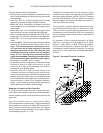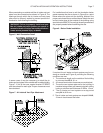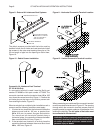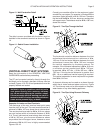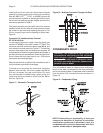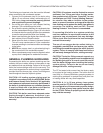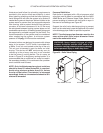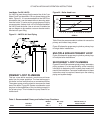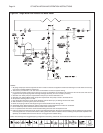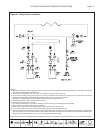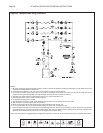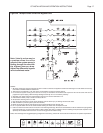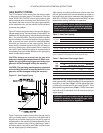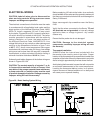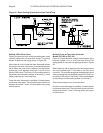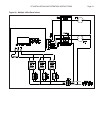
GT INSTALLATION AND OPERATION INSTRUCTIONSPage 14
Air Vent
Union Automatic
Thermometer
Pressure
Relief Valve
Reducing
Check Valve
Pressure
Pump
Ball Valve
Gate Valve Backflow-Prevention
Device
Drain Valve
(Typ.)
Heating
Load
Valve
Differential Pressure
Bypass Valve
Spirotrap
Fine Particulate
Separator
Figure 23 - Single Boiler with Indirect Hot Water Heater
NOTES:
1. All piping and pumps must be supported so that no loads or stresses are applied to boiler heat exchanger. To make boiler service easy
use Unions or fl exible Vibration Isolation Kit.
2. This boiler is provided with a 1/8" vent that is not intended for continuous system venting.
3. For continuous system venting use a cast iron air scoop, for excessive air conditions use a Spirovent. Do not fi re boiler until all air is
purged from the system piping. Heat exchanger damage caused by air is not covered by warranty.
4. See Table 3 for boiler pump fl ow requirements. This pump is wired to terminals C1-L2.
5. See Table 3 for Indirect Water Heater pump fl ow requirements. This pump is wired to terminals AP-L2.
6. Set pressure reducing valve to 12 PSI.
7. Use 30 psi relief valve max. Locate where discharge will not cause injury or damage. Follow local codes.
8. Add an inhibitor to protect system. (CHP from Fernox)
9. Boiler circuit piping must be sized large enough to handle maximum fl ow through unit.
10. Suggested piping. When installing an indirect water heater consult manufacturer’s manual for full details.
11. Do not install any valves between the Vacuum Relief valve and the tank.
12. Do not operate boiler with service valves closed isolating the boiler from the expansion tank.
13. Failure to follow these instructions will result in heat exchanger damage: All fl ux and contaminants must be fl ushed from piping before
connecting boiler. Do not connect this boiler to older systems with cast iron radiation without installing a fi ne particulate separator. TYP:
Spirotrap Junior Model TDN 125 FT. Do Not use non-oxygen barrier radiant tubing.
Notice: This drawings show suggested piping confi guration and valving. Check with local codes and ordinances for specifi c requirements.



